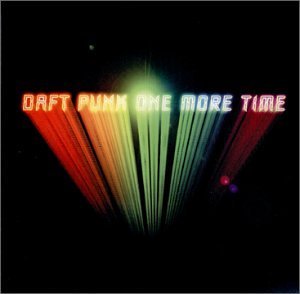
10.
Daft Punk
“One More Time”
[Virgin; 2000]
When I first heard “One More Time” in 2000, it made me feel so good about life, which is exactly what Daft Punk members Thomas Bangalter and Guy-Manuel de Homem-Christo wanted to accomplish. They wanted to recapture the essence of childhood, when you simply enjoyed songs without analyzing them. To comply with their wishes, I will refrain from dissecting the song overmuch. “One More Time” very obviously used auto-tuning on Romanthony’s vocals, which drew a lot of criticism, but for some reason, it worked extremely well for the repetitive song that felt like a futuristic disco party, anyway.
– Arika Dean
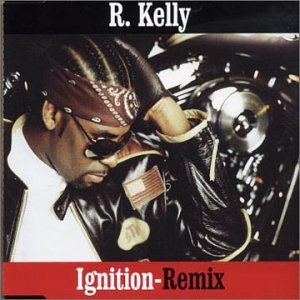
09.
R. Kelly
“Ignition (Remix)”
[Jive; 2002]
R. Kelly has had one of the weirdest recent pop career trajectories imaginable. Since he was charged with child pornography in 2003 (charges, it should be noted, that he eventually beat), he has evolved from a pro forma R&B loverman into one of the most ridiculous pop stars on the planet. His recent work has devolved into self-parody (listen to his recent single “Pregnant” sometimes), but there was a time when his outlandishness was actually a plus. Many point to his indescribable 22-chapter mini-opera “Trapped in the Closet” as his magnum opus. However, “Ignition (Remix)” is his finest moment–three minutes of pop perfection that finds Kells at his most charismatic, working his winning falsetto over a bouncy, string-laden beat and spinning one of the most indelible choruses in recent memory.
– Sean Highkin
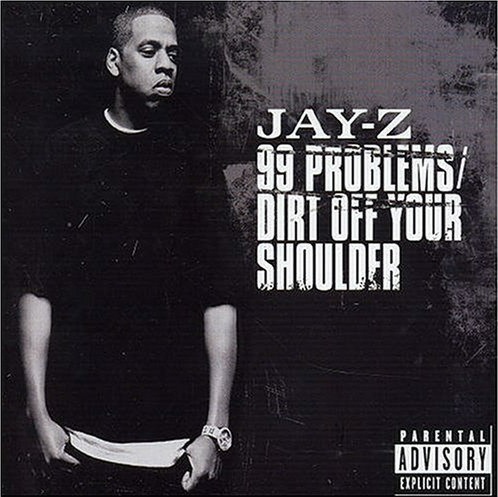
08.
Jay-Z
“99 Problems”
[Roc-A-Fella; 2003]
The Black Album was marketed as Jay-Z’s “retirement” album, and he brought out an all-star team of producers for his going-away party. But while Kanye West, Timbaland, and Just Blaze each contributed some of their finest work ever to this record, none of their songs were as inspired as “99 Problems,” a pulverizing Licensed to Ill throwback produced by OG Beasties/Run-DMC producer Rick Rubin. The second verse in particularly has Hov at the height of his storytelling and voice-acting abilities as he tackles racial profiling head-on. And the beat…how powerful is Rubin’s one-note guitar riff and cowbell-heavy rhythm? Put it this way: Danger Mouse tried to mash “99 Problems” up with “Helter Skelter” on The Grey Album, and no less than two Radiohead mashup projects have had the reasonable-on-paper idea of pairing it with “The National Anthem”–and none of them matched the original for pure rock power.
– Sean Highkin
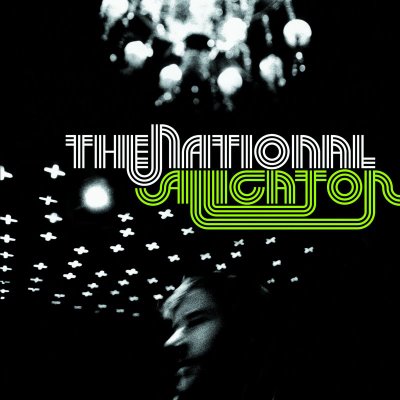
07.
The National
“Mr. November”
[Beggars Banquet; 2005]
Those rippling chords that crash through the door set the pace of one of The National’s most memorable and lasting songs. The drums scurry and cymbals crash and the bass flows patiently but obediently. Across this backdrop Matter Berninger sounds devastated and hopeful at the same time, trying to convince you he had a reputation once. But notably, there’s none of Padma Newsome’s stately and effective orchestral touches; “Mr. November” quite simply proves that The National can rock the fuck out and sound more awesome than most bands would even with the likes of the London Philharmonic behind them. But as much as you try to make an analysis of this song about the music, the highlight and reason you are likely to return is for Berninger’s rallying chorus. When he sings, furious and dedicated, you have no doubt that he won’t fuck us over because with the passion he sings here, you really believe he is Mr. November.
– Ray Finlayson

06.
The White Stripes
“Seven Nation Army”
[V2 / XL; 2003]
The fact that the riff from a song by a band from Detroit has actually become better known as a European soccer chant never fails to amaze me. But it’s not unwarranted–Jack White’s six-note bassline (actually played on a guitar, if you want to get technical) sounded like a rousing call to arms from the moment it was released in 2003. This is a career-defining moment for arguably the most important American band of this decade, and falls right into the “Baba O’Riley”/”London Calling”/”Smells Like Teen Spirit” lineage of rock anthems: it’s got a hall-of-fame guitar riff, a pounding drumbeat that’s more powerful that it sounds, and an independent spirit that defines all of the best rock songs.
– Sean Highkin
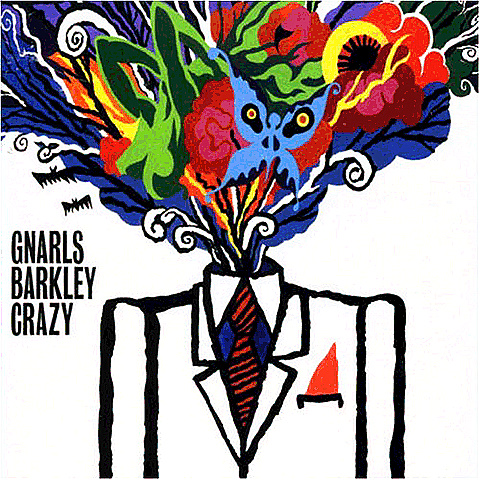
05.
Gnarls Barkley
“Crazy”
[Downtown; 2006]
“Crazy” is that one song that comes around every few years that everybody knows about. At first that doesn’t sound like a ringing endorsement, but it is. Think of the biggest pop phenomenon at any given time. Sure, it seems like everybody knows about it, but that’s not really the case. Even if Lady Gaga gets played at every party or bar you go to, and even you little cousins have heard some of her stuff too, your parents will struggle to remember who does “that poker song.” “Crazy” was bigger than that. Even my father, who just turned 51, knows the words to the song and isn’t afraid to share it on karaoke night. So what makes “Crazy” different? It’s the most brilliantly original three minutes put together by anyone during the “Aughts.” It’s that gargantuan beat that couldn’t be mistaken for anything else, and that voice that seems as though it will reverberate inside your head forever. It’s the song that every musician worth his salt wishes he or she could have written. It was inescapable, yet who would want to escape it? Decades from now, it’s very possible nobody will remember the name Gnarls Barkley. However, you’d truly be insane to think “Crazy” won’t still be victimized by inebriated amateurs at their local tavern.
– Jason Hirschhorn
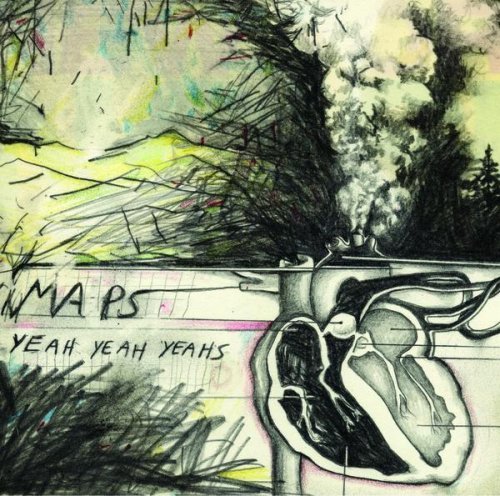
04.
Yeah Yeah Yeahs
“Maps”
[Interscope; 2003]
Everything about this tiny song is just massive; that ringing insistent guitar in the intro, the crashing drums, the guitar squeals in the chorus, the way Karen O so resignedly, even disinterestedly sings the song’s title. The lyrics don’t really mean much, and the ones that are at all meaningful are pretty much typical romantic fodder, but that doesn’t make them any less effective or affecting. This song is so perfectly produced and performed it’s hard to believe it comes off their ramshackle, pseudo-improv debut Fever To Tell. It’s in the way the drums flitter and roll in the second chorus for a split second, the way the vocals become more intense with each chorus, and of course, the way the guitarist Nick Zinner rudely interrupts the song’s otherwise balladic nature with a quick, tuneless fuzz interlude.
The impact of “Maps” was so great it arguably shaped the rest of the NY’s Yeah Yeah Yeahs’ career, for better or for worse. They went soft on their sophomore album, and when that didn’t work they went a little bit new wave but still attempted to make another Monster Ballad. Those songs might be better-written than “Maps,” more interesting musically, whatever you want to call it, but they just aren’t “Maps,” that perfect intersection of bucking expectations and walking, trembling, into something new. It might be more famous now for Rock Band than anything else, but no matter how any potential fan encounters this song, it makes a lasting and profoundly emotional impression. For a song with a chorus as fluffy as “Wait, they don’t love you like I love you,” that’s a pretty remarkable achievement.
– Andrew Ryce
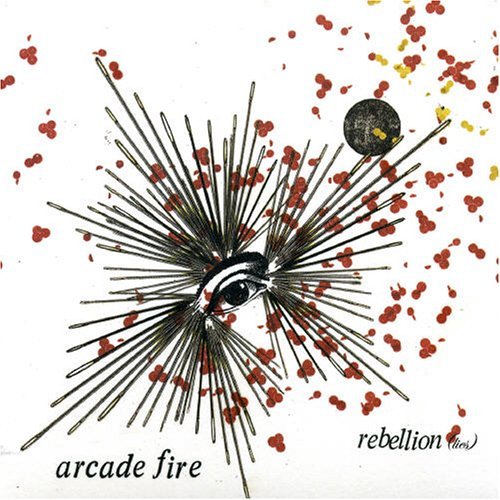
03.
Arcade Fire
“Rebellion (Lies)”
[Merge; 2004]
Sometimes the greatest triumphs result from grief and turmoil. This could not be any more true than on Arcade Fire’s debut album, Funeral. Throughout 2003 and ’04, members of the band had lost loved ones to various illnesses. As a result, the band created a masterpiece that truly captured emotion, despair and a sense of celebration for life. As cliché as it sounds, there is no other way to describe Arcade Fire’s music without using the phrase “larger-than-life.” They brought back the larger-than-life anthem with “Wake Up,” “Nesighborhod # 1 (Tunnels)” and of course “Rebellion (Lies).” With a bassline that shakes the soul, “Rebellion” is a hymn that can lift anyone up. It has a communal quality to it, making the listener fee like they are a part of something bigger. Some have even used the term “religious experience” to describe their music. Whatever you choose to call it, it is impossible to listen to these songs without wanting to dance or clap along. The combination of the bass and sweeping violins make this an epic, and I would not be surpised if they were playing this as a staple closer years from now in stadiums.
– Brent Koepp
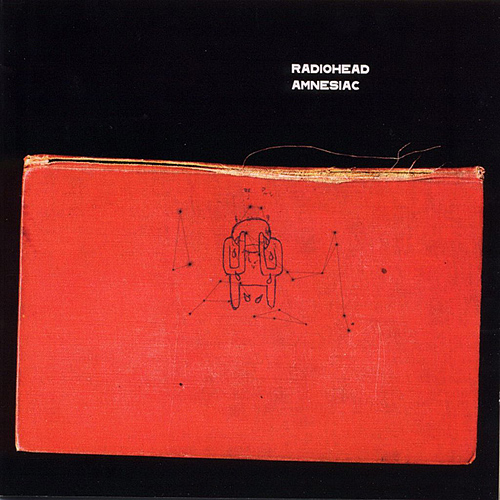
02.
Radiohead
“Life in a Glasshouse”
[Parlophone / Capitol; 2001]
How does Thom Yorke do this to me, time after time after time? You would think that after a few albums his knack for this would wear off. But no, he keeps writing songs that are gut-wrenching and cringe inducing, and so savory and irresistible because of it. I’m not even sure why they have this effect; it’s hard to say with any certainty what the lyrics are getting at, and Yorke isn’t the first troubled vocalist to moan and groan and call it singing. Shouldn’t I have built a shield to this type of thing by now? Yet somehow these undecipherable lyrics are unbearably nerve wrecking, Yorke’s wails remain brutally transparent, and his melodies become increasingly potent and dire. And if that weren’t enough, he’s now adding the flavors of a New Orleans dirge to the mix, unexpectedly strengthening his already firm grip on our hearts and ears. It’s clearly the work of a man who knows what he’s doing, a man who knows what the formulas are, and knows how to tweak them to maximum effect. But more than that, it’s the work of a man who truly feels like he’s there, describing with every crack in his voice the agonizing details of his glass house into which someone’s listening in.
– Ian Barker
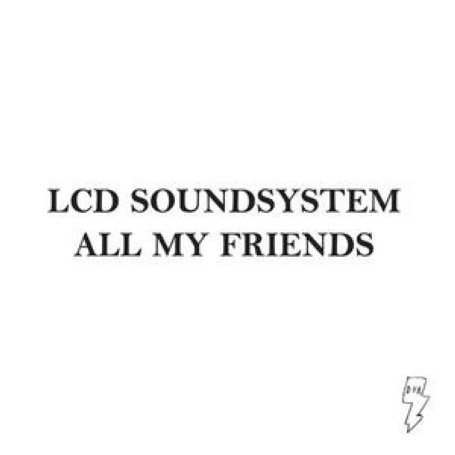
01.
LCD Soundsystem
“All My Friends”
[DFA; 2007]
Forgive the lame joke, but this is how it ends. Not with a whimper, of course, but with those insistent, incessant piano notes, so reminiscent of “Baba O’Riley.” And perhaps James Murphy wanted it that way, for while the Who’s masterpiece is a song about youth – its pain and its beauty – “All My Friends” is a song about getting old. I have to admit, I was a bit surprised to see that “All My Friends” had taken our no. 1 song of the decade trophy – not because I consider the song anything less than a total masterpiece, but because, well, we’re a rather young bunch here at onethirtybpm. But the more I thought about it, the more it began to make sense. In a decade that was in may ways defined by the breakdown of the monoculture – the fracturing of the musical world into seemingly endless subcultures and miniscenes – “All My Friends” is one of the handful of songs that seemed to command an almost universal audience. And while it didn’t launch LCD Soundsystem to the top of the charts like another equally wide-reaching song (OutKast’s “Hey Ya!,” for example) it nevertheless seemed to be everywhere – on everyone’s top-whatever list, etc.
Who knows exactly why this song resonates so profoundly with so many people – if we could answer questions like that there wouldn’t be a need for artists, really – but something about its humming, pulsating, unstoppable build-up (and a great vocal performance from commendable non-singer Murphy) grabbed a lot of us by the throat and clearly has barely let go in the ensuing 3 years. Now, 100 albums and 99 songs later, this, truly, is how it ends.
– Elias Isquith

